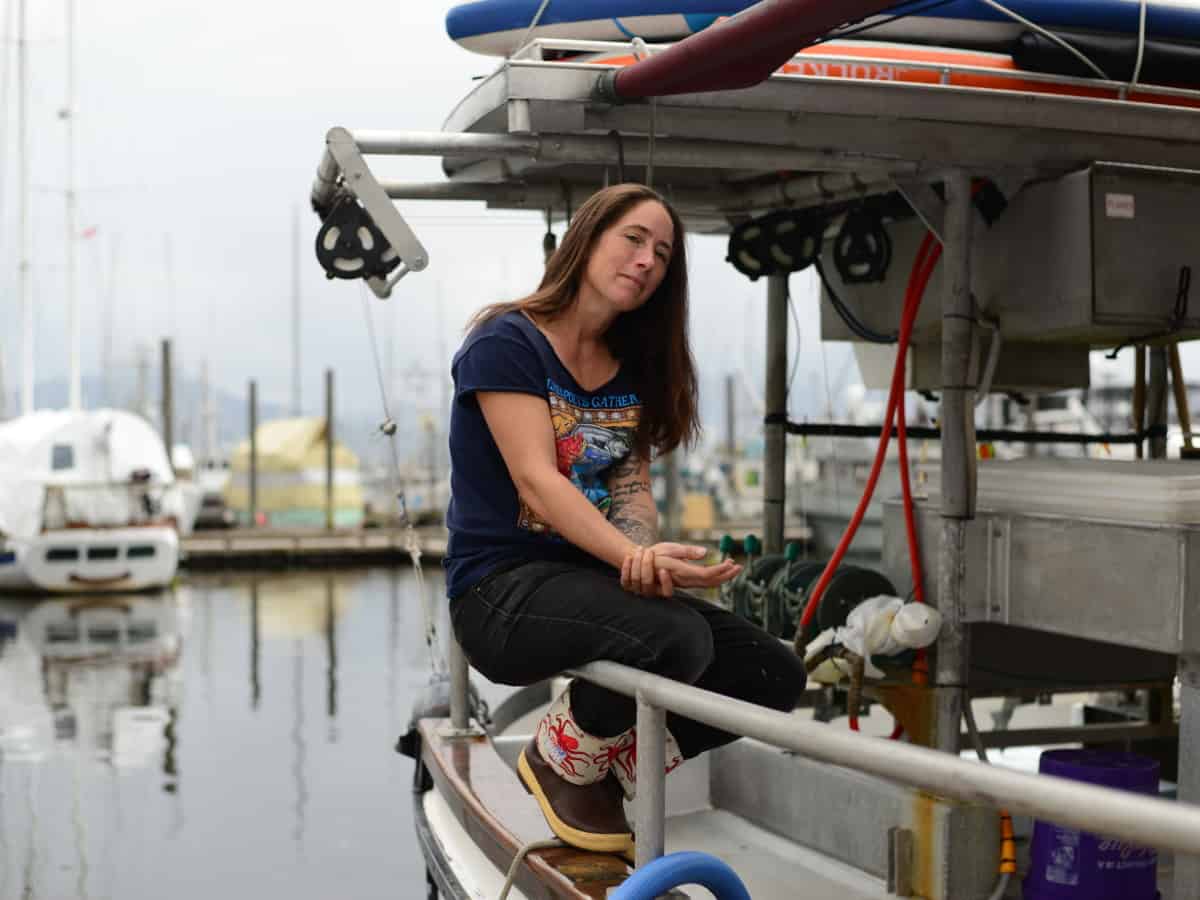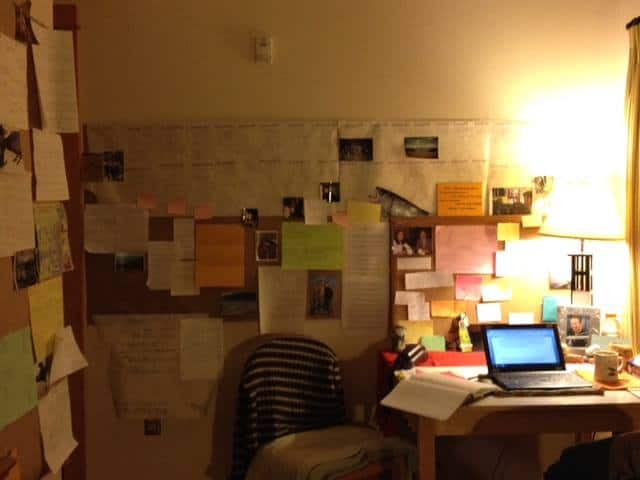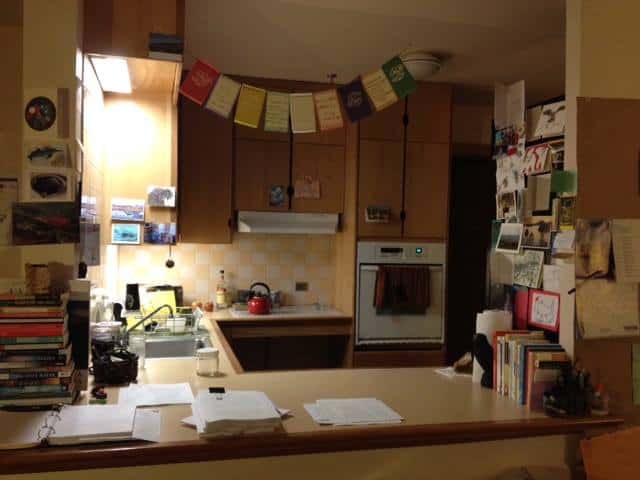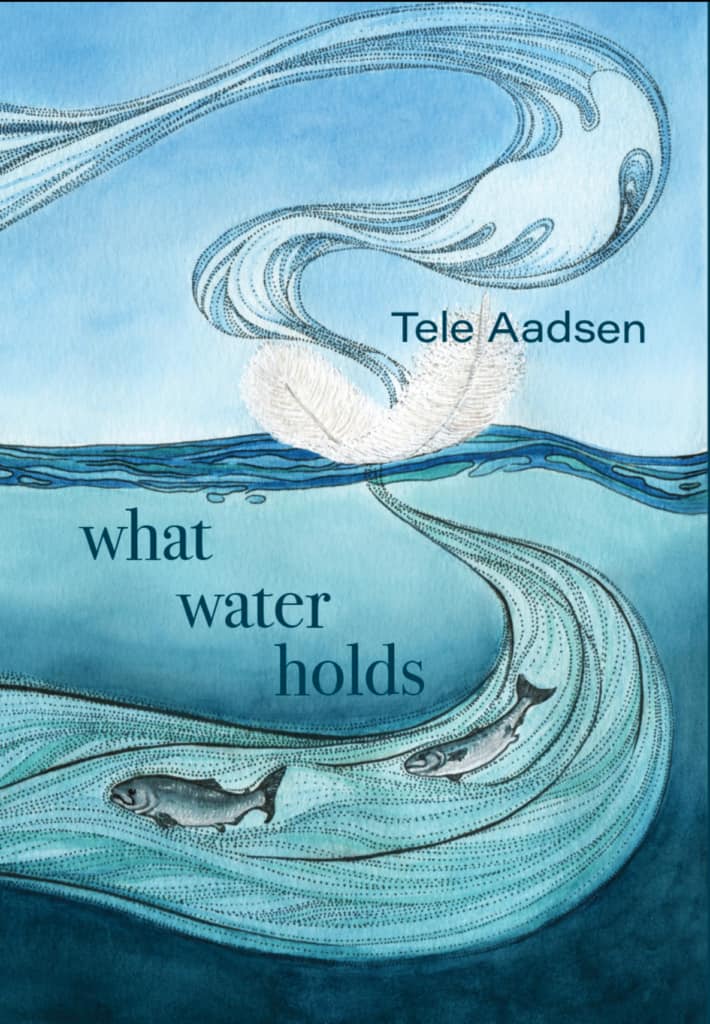
What Water Holds: From the North Cascades to Village Books
In 2023’s frenetic days, it’s hard to believe I once had the incredible privilege of three months as North Cascades Institute’s writer-in-residence. But so it was. In 2013, I’d recently sold a memoir on proposal. Now I just had to write this story of a tree-hugging, yoga-posing, female commercial salmon fisherman navigating gender and family dynamics amid a 43-foot floating universe with my male partner. As a longtime friend of the North Cascades Environmental Learning Center, supplying Chefs Charles Claassen and Shelby Slater with my fisher-family’s catch, I reached out. Might the Institute have an available cabin?


I spent the winter of 2014 in Dogwood 2, an invaluable gift of deep, uninterrupted creative work. The first draft of my first book was born at the Learning Center. Craft conversations and workshops with that winter’s grad student cohort kept me from going too far astray in my own head. I wrote late into the night, surrounded by maritime charts, fishing logbooks, and boat photos. By day I walked. Sometimes a silent meditation on Peninsula Trail, sometimes a muttering march up Sourdough or Diablo Lake, pursuing wily sentences that had skipped just out of reach at my desk. I channeled Southeast Alaska’s wild outer coast onto paper, within the inland sanctuary of the North Cascades.
You won’t find a copy of that book anywhere. Two revisions later, my editor took a different job and the publisher cancelled my contract. Predictably shattered at first – an artist’s nightmare, validating every vicious inner critic and insecurity – I came to feel relief and gratitude. The story moving forward wasn’t the one I was ready to share.
But what was?
For years after that residency, the only writing I did was for Oregon’s FisherPoets Gathering. Started in 1998 by commercial fisherfolks honoring our work with poetry, prose, and song, every February was motivation to brave the blank page or screen. To create something new. But again the question: What would I share? In writing and reading to a mixed crowd – mariners who’d lived the salty jargon; land-friends living vicariously – I considered what had happened over the year since we’d last gathered, what was important to me to say, what might be meaningful for others to hear. What stories called to be told?
Natalie Goldberg said, “Writers end up writing about their obsessions. Things that haunt them; things they can’t forget; stories they carry in their bodies waiting to be released.”
Twelve years of FisherPoets’ essays put my evolving obsessions on full, undeniable display. The narrator’s voice shifts from that of a young woman struggling to maintain agency within a male-dominated industry, to establishing equity in the inescapably hierarchical “captain/crew” dynamic, to broader environmental observations and questions. Commercial fisherfolks have front-row seats to the changing climate, citizen scientists directly engaged with ever-shifting marine ecosystems. As land-friends place increased value on knowing their harvesters, how to communicate the complex network of conservation-based fisheries management and responsible harvest practices that ensures a sustainable sea-to-plate story? What does it mean to be both harvester and environmentalist? How to convey deep salmon reverence, as written by bloody hands?
In the spring of 2022, poet Holly Hughes asked if I’d be interested in publishing these essays. I had not thought about trying again, following my prior experience. But Holly was a fellow FisherPoet & trusted mentor; she and her partner John were just taking the helm of the Pacific Northwest’s small literary press, Empty Bowl. What would it be to produce a book with people I respected and felt safe with, who truly valued producing a beautiful book while honoring my authority over the stories?
 It was as great a gift as that time in Dogwood 2 was. Nurturing and generative, and healing, too. What Water Holds is a different memoir, a collection of essays exploring identity, equity, community, the changing climate, and sustainability, as experienced over my four decades as a female commercial fisherman. It brings me full-circle to the younger writer who took to the Sourdough Trail in hope of tracking elusive sentences, whose first stop coming out of residency was Village Books- buying Alaskan author John Straley’s latest.
It was as great a gift as that time in Dogwood 2 was. Nurturing and generative, and healing, too. What Water Holds is a different memoir, a collection of essays exploring identity, equity, community, the changing climate, and sustainability, as experienced over my four decades as a female commercial fisherman. It brings me full-circle to the younger writer who took to the Sourdough Trail in hope of tracking elusive sentences, whose first stop coming out of residency was Village Books- buying Alaskan author John Straley’s latest.
This book breathes new life into those Institute connections. Empty Bowl’s mission – “literature and responsibility, and its fundamental theme, the love and preservation of human communities in wild places” – echoes values of iconic North Cascade writers. Holly has long been a beloved Institute writing and mindfulness instructor, co-facilitating workshops with Kurt Hoelting.
Though the stories are born of Southeast Alaska, What Water Holds’ journey into being is as linked to the North Cascades as the Skagit River flowing down valley to the Salish Sea.


Thank you Tele, for remembering and connecting the circles. The looping lines of rivers flowing to the sea. “What Water Holds” is simply — everything. What a gift.